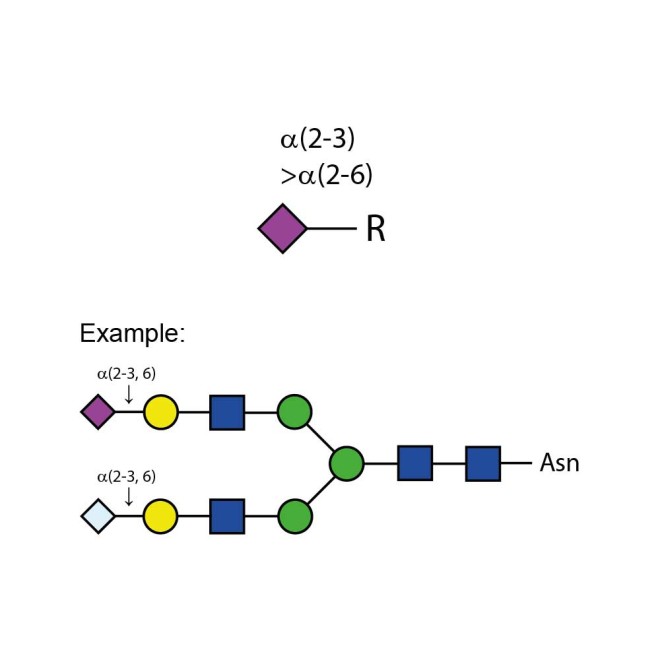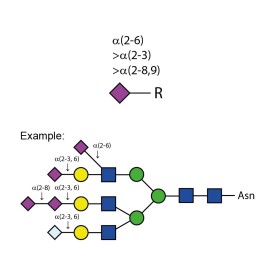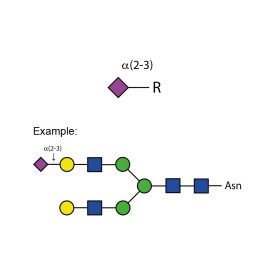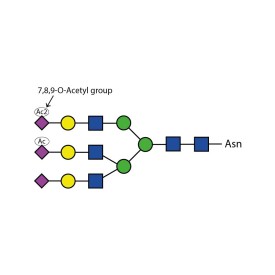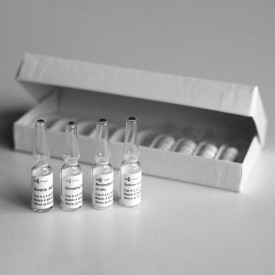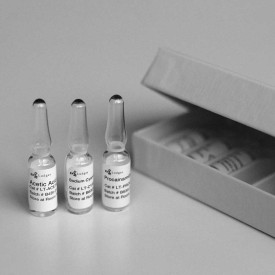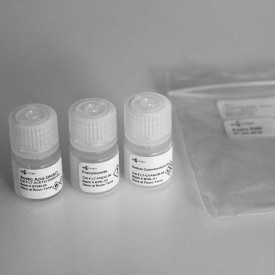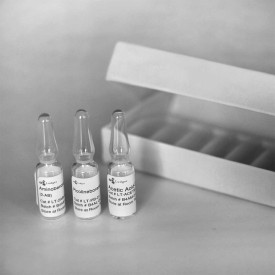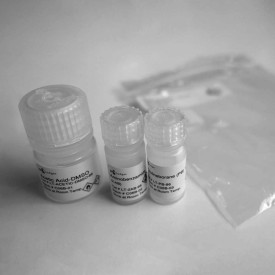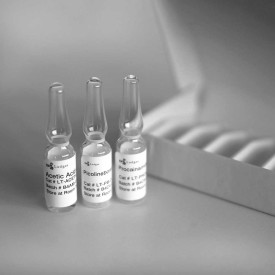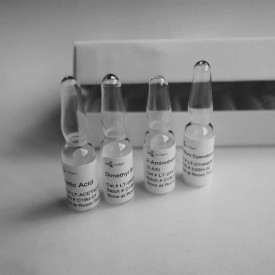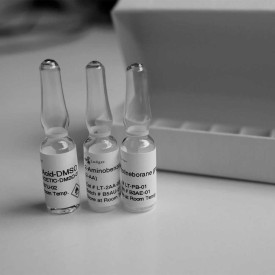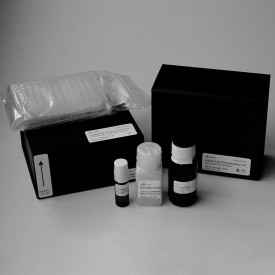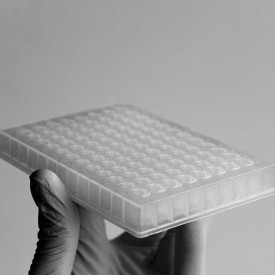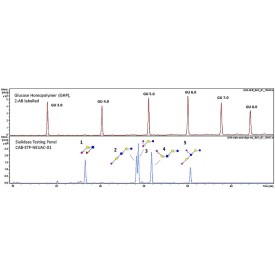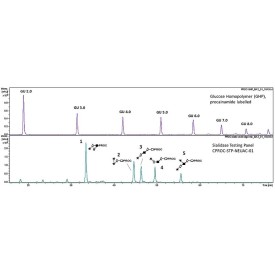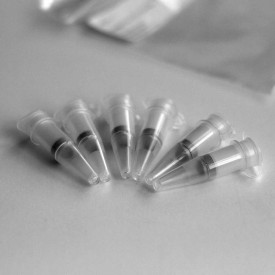Sialidase Cp α-(2-3,6)
α(2-3,6) Sialidase Cp cleaves all non-reducing terminal non-branched α(2-3) and α(2-6) sialic acid residues from complex carbohydrates and glycoproteins. There is no detectable activity on α(2-8) or α(2-9) linkages or on branched α(2-3) or α(2-6) linkages. The relative cleavage rates for different linkages are: α(2-3) > α(2-6).
α(2-3,6) Sialidase Cp will not cleave branched sialic acids (linked to an internal residue). Use α(2-3,6,8,9) Sialidase Au (E-S001) for α(2-8) or branched sialic acids. To cleave only non-reducing terminal α(2-3) unbranched sialic acid residues, use α(2-3) Sialidase Sp (E-S007).
α(2-3,6) Sialidase Cp is isolated from a clone of Clostridium perfringens. The enzyme has been extensively characterized using oligosaccharide standards.
Product specification
Alternate Names: Neuraminidase, NANase, N-acetylneuraminate glycohydrolase, Exo-α-sialidase
EC: 3.2.1.18
Source: Recombinant from Clostridium perfringens in E. coli.
Sialidase Cp in 20 mM Tris-HCl, 25 mM NaCl, pH 7.5
5x Reaction Buffer 250 mM sodium phosphate, pH 6.0
Specific Activity: >250 U/mg
Activity: >15 U/mL
Molecular weight: 41,000 daltons
pH range: 50 mM sodium phosphate (pH 6.0) provides the optimal buffer for enzyme activity with 3'-siayllactose, a standard substrate. If glycosidase treatment is performed at suboptimal pH because of glycoprotein solubility or activity requirements, expect some diminution in enzyme activity.
Suggested usage:
1. Add up to 100 µg of glycoprotein or 1 nmol of oligosaccharide to tube.
2. Add water to 14 µL
3. Add 4 µL 5X Reaction Buffer.
4. Add 2 µL α(2-3,6) Sialidase Cp.
5. Incubate at 37°C for 1 hour.
Desialylation may be monitored by SDS-PAGE if the size differential between native and desialylated protein is sufficient for detection.
Specificity: Cleaves all nonreducing terminal non-branched α(2-3) and α(2-6) sialic acid residues from complex carbohydrates and glycoproteins.
Relative cleavage rates for different linkages are: (2-3) > (2-6).
Specific Activity Assay: Defined as the amount of enzyme required to produce 1 µmole of methylumbelliferone in 1 minute at 37°C, pH 5.0 from MU-NANA [2'-(4-methylumbelliferyl)-α-D-N-acetylneuraminic acid].
Storage: Store enzyme at 4°C.


